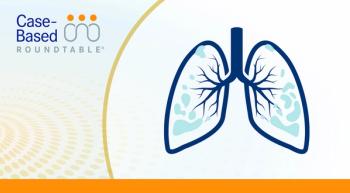
Limited Success Seen in the Second-Line for SCLC

Gene G. Finley, MD, explains the use of conventional chemotherapy in the small cell lung cancer space.
Gene G. Finley, MD, medical oncologist at Allegheny Clinic Medical Oncology of Allegheny Health Network, explains the use of conventional chemotherapy in the small cell lung cancer (SCLC) space and the lack of recent successes.
Previously in 2020, the
However, there has not been as much success in the field since. This is especially true for patients with extensive-stage disease and regarding advancements in the second-line setting.
Transcription:
0:08 | In terms of conventional chemotherapy, the big news was the registration of lurbinectedin which was a couple of years ago now. We're using that in the second-line setting. These drugs are better than the older drugs like topotecan, but the myelosuppression is a little bit worse, but we've learned to handle that. I think that's been a significant benefit.
0:34 | Then, if the patient has been off first-line therapy for a long time, it can reintroduce platinum chemotherapy and can even reintroduce immunotherapy if they've been several months off treatment. I think the challenge that we're having in extensive-stage disease for the patients that have primary resistance, is that they usually respond initially, they'll stay in remission for a while, and then they'll relapse. In the second-line setting, we haven't been very successful.










































